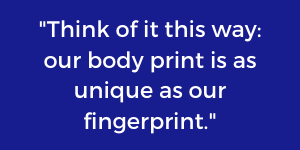
Hippocrates made a keen observation more than 2,400 years ago, “It is more important to know what kind of patient has the disease than what kind of disease the patient has.”
This statement could not ring truer then as it does now. It is the driving force behind GO2 for Lung Cancer and one that is uniting doctors, researchers, patients, and industry partners to better tailor healthcare to an individual’s biological characteristics and circumstances. This is of critical importance as those at risk for or diagnosed with lung cancer are benefiting from early detection and more new treatment discoveries in the past 5 years than the last 5 decades. These breakthroughs are revolutionary and life extending – specifically because they are driving more precision-based care.
 The first step of personalized treatment begins with early detection, to diagnosis, to multiple disciplinary care and survival. To that end, one of GO2 for Lung Cancer’s key strategic goals is ensuring comprehensive biomarker testing. Biomarker testing, also known as genetic testing, identifies specific characteristics in cancer cells that are unique to each patient. Think of it this way: our body print is as unique as our fingerprint.
The first step of personalized treatment begins with early detection, to diagnosis, to multiple disciplinary care and survival. To that end, one of GO2 for Lung Cancer’s key strategic goals is ensuring comprehensive biomarker testing. Biomarker testing, also known as genetic testing, identifies specific characteristics in cancer cells that are unique to each patient. Think of it this way: our body print is as unique as our fingerprint.
When biomarkers are identified, treatment can be targeted and personalized to the specific patient’s needs. GO2 for Lung Cancer has a number of patient support and research programs that help drive and improve this type of precision medicine, including through our Centers of Excellence program where GO2 for Lung Cancer promotes access to comprehensive biomarker testing, multi-disciplinary care and corresponding patient education and support at community hospitals throughout the country.
Another cornerstone of our work and commitment to patients is GO2 for Lung Cancer’s research portfolio where, in collaboration with our medical institute, the Addario Lung Cancer Medical Institute (ALCMI), we study unique lung cancer characteristics, precision therapies, treatment resistance, and emerging survivorship issues to understand how new medications affect our patients holistically.
GO2 for Lung Cancer’s research includes subpopulations who may need different treatment paradigms such as women or young people who are diagnosed with lung cancer. We are also devoted to ensuring inclusive research through projects that help encourage underserved and diverse populations to participate in clinical studies so that we can learn from the broadest population how to tailor care to each unique individual. And now, this research includes how lung cancer patients are affected by COVID-19 and how to help ensure the best outcomes for those infected.
Indeed, the focus on individualized, precision care is ever more critical with the emergence of COVID-19. While the virus has unleashed an unprecedented upheaval in our health care delivery system, it has also provided new opportunities to study and understand how people living with and being treated for lung cancer respond to the virus based on their individual diagnosis. Discovering how patients can best avoid the virus, and how it can be managed and treated based on specific cancer characteristics, will drive us closer to patients and their needs and treatments. This includes overcoming fears and undertaking thoughtful conversations that explain the value of treatment, treatment modifications, and alternatives during the pandemic.
With this in mind, our Lung Cancer Living Room series was transformed into a virtual discussion at the start of the pandemic, which enabled us to continue the invaluable discussions between specialists, physicians, and researchers in conversation with patients and advocates. In addition to our Living Rooms, GO2 for Lung Cancer’s LungMATCH program allows any patient or caregiver to speak to a treatment or trial specialist – free of charge – to understand their treatment options and help make the best choices with their treatment team.
In the future, COVID-19 will prove to be a new beginning in cancer care that goes far beyond what we are delivering today. Now more than ever, researchers, doctors, and patients must work closely together to determine what is in the best interest of each individual patient. This is emblematic of personalized medicine and care – past, present and future.
This article originally appeared in USA Today’s special Lung Health issue. Click here to read.
Want to stay up-to-date on the latest lung cancer treatment and research?
If you are interested in receiving information about new drug approvals, upcoming clinical trials, or what other research at GO2 for Lung Cancer could benefit you, please register for our new clinical trials newsletter by emailing Daniel Saez at dsaez@go2.org

Leave A Comment